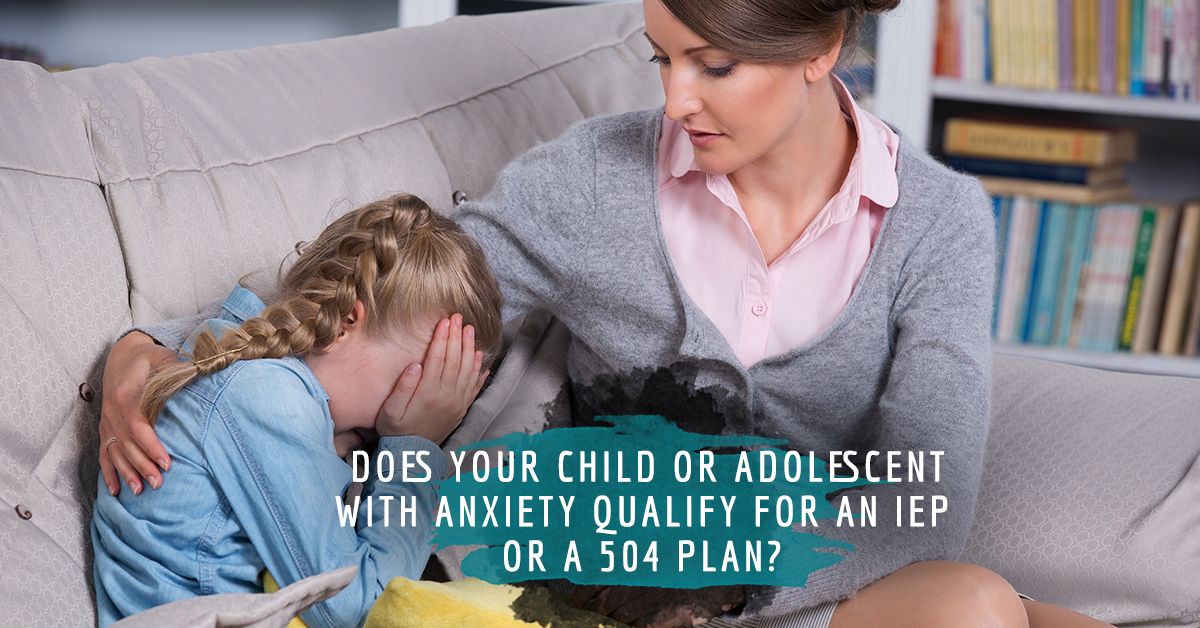At Dr. Angela Reiter & Associates in Eastchester, NY, we can assist you in determining whether an IEP (Individualized Education Program) or a 504 Plan is more appropriate for your child or adolescent experiencing anxiety. A federal law called the Individuals with Disabilities Education Act (IDEA) requires that public schools create an IEP for every child receiving special education services. Kids from age three through high school may be eligible for an IEP. An IEP is meant to address each child’s unique learning issues and include specific educational goals. An IEP includes: A statement of how your child is doing in school now, annual educational goals, special education supports and services, modifications and accommodations, accommodations allowed when taking standardized tests, how and when the school will measure and review progress toward annual goals, as well as transition planning. Accommodations are changes in how a child shows what he or she has learned, such as extra time on tests. Modifications are changes in what is taught to or expected of a student. It is important to understand that a physician or another medical professional (like a psychologist) and not the school, can diagnose medical and psychiatric conditions. This includes ADHD, learning disabilities, mood disorders, and anxiety. School evaluators don’t offer “diagnoses.” A comprehensive evaluation is often necessary to provide an accurate diagnosis and then recommend the accommodations and modifications for an IEP Plan.
There are 13 disabilities covered under IDEA that qualify for an IEP plan. This list includes: Autism, Deaf-blindness, Deafness, Emotional disturbance, Hearing impairment, Intellectual disability, Multiple disabilities, Orthopedic impairment, Other health impairment (including ADHD), Specific learning disability (including dyslexia, dyscalculia and dysgraphia, among others), Speech or language impairment, Traumatic brain injury, Visual impairment, including blindness. In order to be eligible, a student must: Have a disability. As a result of that disability the child must need special education in order to make progress in school. If, for example, a student has ADHD but is doing well in school, he might not be covered by IDEA.


